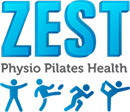Low back pain is a major health condition with a high prevalence rate and cost to our health system. Back pain has a tendency to recur, and it is estimated that approximately 80% of back pain will recur within one year of an initial injury. Much research has been conducted into different treatments for low back pain. It has been shown that exercise is more beneficial than rest for prevention of recurrences (Soukop, 1999). In a study which investigated core stability exercises for low back pain, it was found that patients who performed core stability exercises were 2.1 times less likely to suffer from low back pain than those who rested or did other exercise at a 3 year follow up.
If you have a back injury, or are concerned about your back ache speak to your physiotherapist about preventative strategies to reduce your chance of back pain recurring. Evidence has shown that the recurrence rate and number of recurrences can be reduced by performing back pain physiotherapy exercises after physiotherapy treatment. It has also been shown that the time to another recurrence can be prolonged with these exercises. Physiotherapists can help you by providing manual treatment, education, specific exercises, lumbar supports, postural advice, ergonomic assessment and risk factor modification to help reduce your risk of back pain recurrence. It’s never too late to fix your back through back pain therapy!

- Acute and chronic disc injuries such as bulges, prolapses and herniations
Nerve compression injuries and sciatica (leg pain referred from your back)
Facet joint injuries
- Spondylolisthesis
- Spinal stress fractures
- Osteoarthritis and degenerative issues
- General back ache, muscle aches and pains
- Thoracic and rib pain
- Scoliosis
- Neck (cervical) pain
Whiplash injuries
Headaches and migraines
- Post-operative back rehabilitation after procedures such as laminectomy and discectomy
Physiotherapy Assessment
On your first consultation we will thoroughly assess your back injury. In this session we will evaluate your history and goals in detail and conduct a series of clinical tests. These tests are vital as they enable the physiotherapist to diagnose your issue thus provide the best treatment path for you. You will be provided with a clear diagnosis of your issues and will leave this session with a plan outlining best managment practices for YOUR injury based on solid evidence and our clinical expertise.
Treatment
There are many different forms of treatment for back injuries. Manual therapy describes some of these lower back pain treatment techniques that your physiotherapist may utilise to improve your alignment, improve your joint mobility or to improve the way your muscles work together to support you. Techniques may include massage, joint mobilisation, myofascial release, manipulation, dry needlling or a combination of some/all of these modalities. The best form of manual therapy for you will be determined by our experienced team of Physiotherapists.
Rehabilitation
Real-time ultrasound imaging of your core muscles is important to teach you how to use your core muscles effectively with progressions to independent programs. We will guide you on the best and most specific exercises for your particular back injury. Exercise and fitness programs are vital for ongoing maintenance of your back injury and to prevent recurrence. You can perform exercise by yourself at home, in a group situation or even in one of our classes with your physiotherapist watching your technique!

